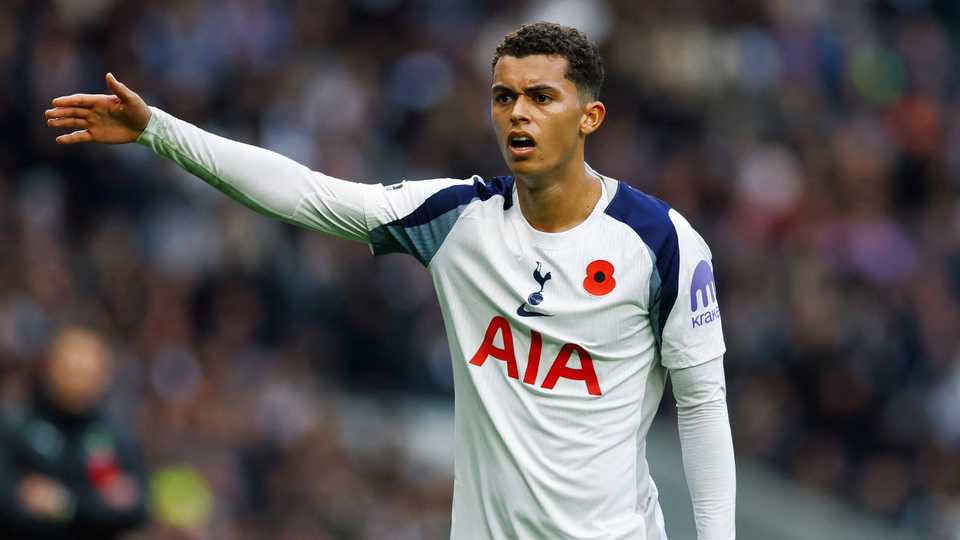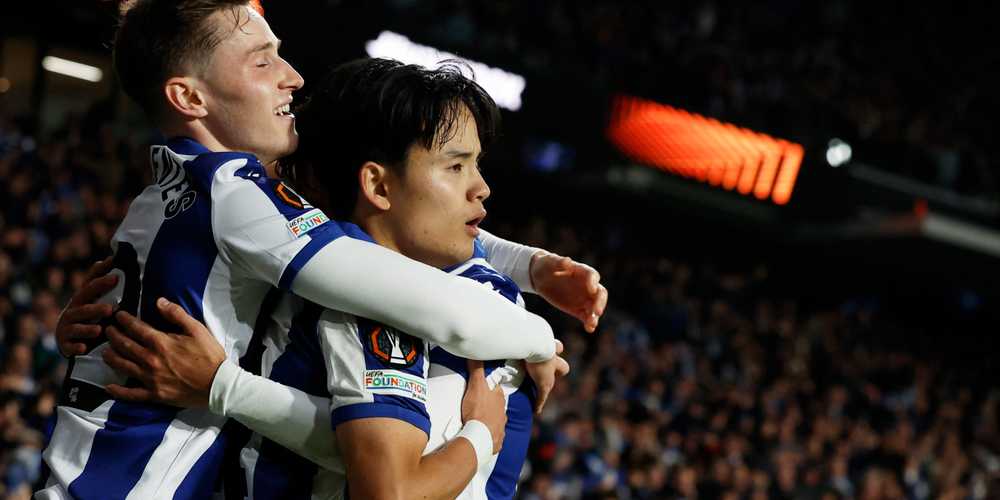Tottenham Hotspur find themselves at an important moment in the season as they head into the international break, and Thomas Frank will know that changes are needed if the team want to stay competitive in the Premier League.
Spurs have managed only one win in their last four games and just two victories across their previous seven in all competitions, with their latest outing ending in a dramatic 2-2 draw against Manchester City.
Their current position fifth place with five wins and only three defeats in 11 league matches is respectable, especially under a new head coach, but the deeper numbers suggest concerns that cannot be ignored.
While results have kept them within touching distance of the top four, the underlying metrics reveal a team struggling to consistently create meaningful chances and one that often allows opponents too many opportunities.

A closer look at the data paints a worrying picture for the rest of the campaign unless the club takes action to improve the creativity and efficiency of the attack.
Here is a quick breakdown of Spurs’ performance metrics this season:
| Metric | Spurs Value | League Rank |
|---|---|---|
| Shots on Target | 38 | 14th |
| Non-Penalty xG | 11.0 | 15th |
| xG | 11.0 | 15th |
| xGA | 15.2 | 14th |
| xGD | -4.2 | 17th |
| xGD per 90 | -0.38 | 17th |
These numbers highlight how Spurs are currently giving up more than they are creating. In short, the team frequently allows high-quality opposition chances while struggling to produce their own.
That imbalance is one of the major reasons why Spurs need greater creativity in the final third, and why certain players may no longer fit into the long-term plan. One of them is Brennan Johnson.
Johnson was signed from Nottingham Forest for £47.5m in 2023, and in fairness, he has already delivered moments that made the investment worthwhile.
His winning goal in last season’s Europa League final alone gives him a special place in Spurs history. With 27 goals in all competitions since joining the club, he has proven that he can be a reliable threat in front of goal.
However, Johnson’s all-around game on the wing has not developed as Spurs hoped. His creativity is limited, his progression numbers are weak, and too often he struggles to influence matches outside of scoring.
For a team that desperately needs more invention and forward thrust, these issues make it difficult to rely on him as a long-term starter.

Below is a look at Johnson’s Premier League performance from last season compared to other wingers:
| Statistic (per 90) | Johnson | Rank vs Wingers |
|---|---|---|
| xAG | 0.10 | Bottom 18% |
| Assists | 0.12 | Bottom 37% |
| Progressive Passes | 2.94 | Bottom 39% |
| Progressive Carries | 2.84 | Bottom 33% |
| Successful Take-ons | 0.79 | Bottom 22% |
| Passes into Final Third | 1.03 | Bottom 20% |
| Key Passes | 0.79 | Bottom 9% |
Those numbers speak for themselves. Johnson has struggled to create chances, beat defenders consistently, or move the ball forward in dangerous areas.
This season has shown marginal improvement, but not enough to solve Spurs’ attacking shortcomings. With only 0.4 key passes per game and 0.25 xA in his 11 league appearances, the Welsh winger remains far from the creative spark Spurs need.
This is why Tottenham are now exploring alternatives, and a major target has emerged: Real Sociedad winger Takefusa Kubo. Reports suggest Spurs are eager to activate his £52m release clause in January, giving them the chance to secure a dynamic, highly skilled wide player without negotiating a fee.
Kubo, once billed as the “Japanese Messi” during his time at Barcelona and Real Madrid, has grown into a gifted dribbler and creator in LaLiga.

Everton’s stance that they will not sell Iliman N’Diaye in January has pushed Spurs to focus even more on Kubo, who fits the profile the club desperately need.
While his assist totals for Real Sociedad have not been high, the underlying numbers make it clear that his teammates’ poor finishing has hidden his true creative quality.
Here is a snapshot of Kubo’s performance over the last 365 days:
| Statistic (per 90) | Kubo | Rank vs Midfielders |
|---|---|---|
| xAG | 0.17 | Top 10% |
| Assists | 0.07 | Bottom 45% |
| Progressive Passes | 3.66 | Bottom 22% |
| Progressive Carries | 4.60 | Top 1% |
| Successful Take-ons | 2.58 | Top 1% |
| Touches in Attacking Box | 4.81 | Top 1% |
| Key Passes | 1.78 | Top 10% |
| Passes into Penalty Area | 1.43 | Top 9% |
These numbers reveal why Kubo is viewed as a world-class talent. He consistently beats defenders, drives his team up the pitch, creates dangerous chances, and impacts games in the final third.
Despite his low assist count, he produced nine big chances last season none of which were converted. In a Spurs side featuring Richarlison, Mathys Tel, Mohammed Kudus, and Wilson Odobert, those chances would almost certainly produce far better outcomes.
If Spurs complete the move, Johnson’s role could shrink significantly. Competition for places would intensify, and with his struggles in possession, he may find consistent minutes hard to come by.
A player once seen as a long-term investment could soon face questions about his future if Kubo arrives and quickly becomes a key figure in the attack.
In the end, Tottenham’s ambition to evolve and strengthen may come at the cost of Johnson’s starting spot. With a £52m clause ready to be triggered and a world-class talent available, Spurs have a chance to reshape their attack—and they appear ready to take it.